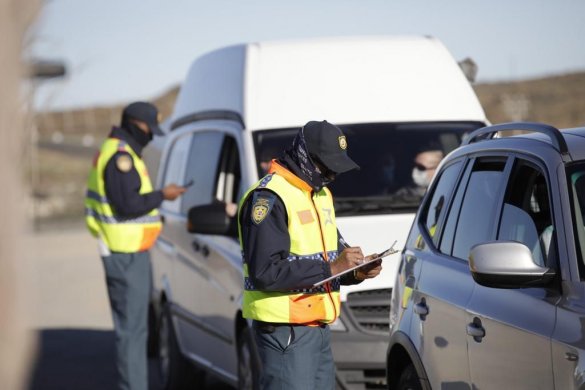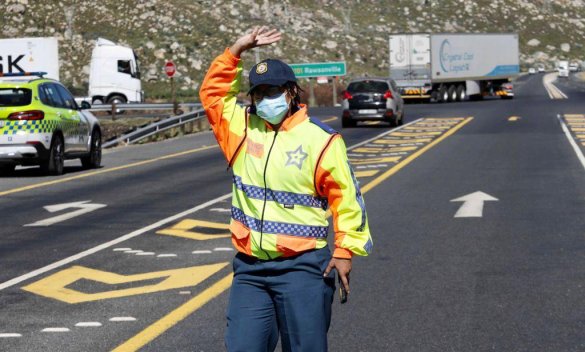To avoid frustration, your expected driving time should always take into account the possibility that there may be roadblocks on the way.
Roadblocks, also known as traffic law enforcement operations, are featured in the 2016-2030 National Road Safety Strategy (NRSS), the national Department of Transport’s long-term strategic approach to reduce the number of deaths on our roads.
Roadblocks help to ensure that vehicles on the road network are roadworthy, and that motorists are not driving under the influence of alcohol.
View all strategic themes in the NRSS document
The driver’s responsibility
You can minimise delays if you cooperate with this important road safety operation.
When approaching a roadblock
- Be patient – Remember that you are participating in a necessary road safety operation.
- Slow down – Decelerate when approaching a roadblock. Keep in mind that some vehicles will be pulled off the road. In cases where all vehicles need to be checked, traffic will come to a complete halt.
- Comply- The traffic officer will ask you to present your driver’s licence, and possibly other documents as well. The team on duty may administer certain tests including breathalyser, blood pressure and sugar level tests. Western Cape Emergency Medical Services (EMS) will assist with blood tests.
Traffic officers may stop you and check for the following:
- Driving under the influence of alcohol (DUI).
- Fatigue.
- Safety belt offences.
- Overloading.
- Professional Driving Permits (PrDP) (for public transport vehicles).
- Public transport vehicle/ driver violations.
- Invalid and fraudulent licences.
- Vehicle-related offences such as the use of illegal number plates and vehicle defects.
Alcohol blitz
If you are suspected of driving under the influence of alcohol or if you admit to drinking before driving:
- The traffic officer will ask you to blow into an evidentiary breath alcohol testing (EBAT) machine commonly referred to as a breathalyser.
- If you are over the legal limit of 0,24 mg of alchohol/ 1 000 ml of blood, the officer will arrest you and read you your legal rights.
- A traffic or police officer will take you to a police station where an officer will open a docket.
- A registered nurse or doctor will conduct a blood test within 2 hours of the time of the arrest.
What is evidentiary breath alcohol testing?
EBAT uses a machine which can read how much alcohol is in a person’s breath. It is called “evidentiary” because an EBAT reading can be used as evidence in the prosecution of a person accused of driving under the influence.
EBAT was reintroduced in the Western Cape in August 2016 after being withdrawn from use in 2011.
- Read more about EBAT


